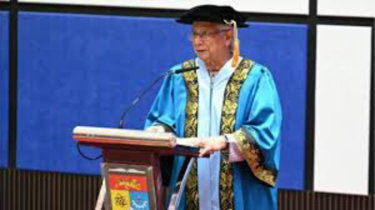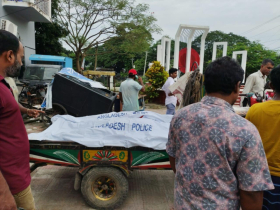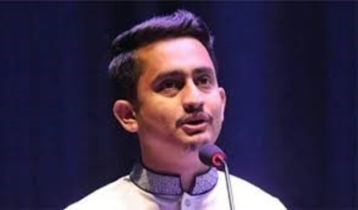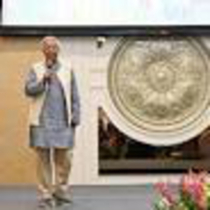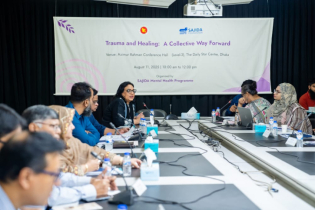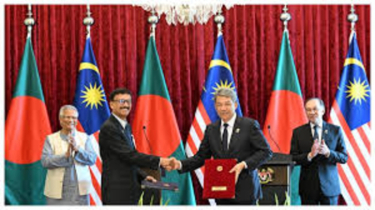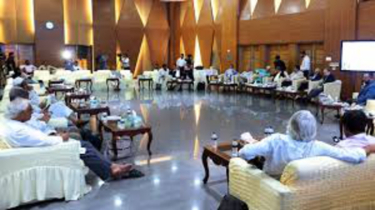
The politics of Bengal today resembles a bustling fair—a bazaar of power. There are no stalls selling rice, lentils, clothes, or sweets; yet, crowds keep gathering. Because in this bazaar, promises are sold—wrapped in slogans and colorful dreams of hope. The buyers are the common people, and the sellers are the seasoned players of politics, who seek to profit from the glittering packages of words.
The character of the merchants in this bazaar is also astonishing. Once, at Moin Sahab’s shop, the signboard read, “Principle is everything.” Back then, people came seeking honesty, justice, and values. But as times changed, the board was replaced with a new motto—“Time is the greatest principle.” This reflects the whole political culture, where ideals have no permanence; there is only the skill of adapting to circumstances.
In this bazaar, former enemies now sit together sipping tea at the same table. Those once called “enemies of the nation” have become “protectors of the country’s future.” Is it unity for the nation’s interest—or a deal to share power? History has repeatedly shown that political friendships and enmities shift with changing interests. Just as Cold War rivals once shook hands, today’s allies may be tomorrow’s competitors.
The most popular game here is “box swapping.” Before elections, old promise boxes are opened, their contents repackaged, and handed to voters as new pledges. Voters receive these new boxes but find inside the same old words, only in a different wrapper. Many voters get confused in this game and end up repeating past mistakes.
Politics in the ’70s and ’80s was marked by fierce conflict, violence, and direct rivalry. Yet, necessity has brought those former enemies to sit side by side at the table of power, smiling for photos. This proves that in politics, there are no permanent enemies—only permanent interests. While this is part of democracy, when self-interest is the sole driving force, it breeds disappointment and distrust among the people.
Still, the real power of democracy lies with the people. The right to vote is the only tool through which ordinary citizens can balance political power. They know there is no “final word” in politics; every ending signals a new beginning. But the success of that beginning depends on voter awareness. Decisions must be made not by blind passion but by information, reason, and experience—this is the essence of democracy.
An experienced politician once said, “Politics is like a river—the current changes direction, but the seed of morality must never dry up.” Flexibility is necessary, but it must be grounded in the welfare and ethics of the nation. If direction changes only for power, the current will dry up before reaching its destination.
Ultimately, the last word in the bazaar of power is the start of a new scene. Therefore, the people’s responsibility is to understand the script behind the stage, to unwrap the shiny cover of promises and see the true story inside. We are all both spectators and participants in this drama—buyers and sellers together. As long as we remain aware, democracy will live, and the nation will progress.
Every day this bazaar adorns itself in new colors—new faces, new speeches, new slogans—all signaling change. The people hope that every new box will correct past mistakes and bring new ideas and development plans. But that hope will be fulfilled only when politicians plant their promises in the soil of reality, not just paper declarations.
People want a politics where power is a tool for service, not exploitation; where voters’ trust is unshakable, and politicians’ integrity unquestionable. If they place the nation’s interest above personal gain, the bazaar of power will truly become a public forum.
One more truth must not be forgotten—democracy is not only about voting day, but about daily behavior and responsibility. Without ethics, accountability, and public trust, democracy is like a well-decorated fair—beautiful from afar but hollow up close.
The bazaar of power will continue as long as we hold the right to vote, as long as we understand our responsibility to shape the nation’s destiny. There is no alternative—because democracy is not just a right but a daily duty. It is by fulfilling this duty that we find our liberation and progress.
So let us not turn this bazaar into merely a theatrical stage but make it the true meeting place for changing the country’s fate. Where voters choose leaders with awareness, and politicians turn promises into actions. Then, the words of promises will no longer be empty rhetoric—they will be the steps toward progress, the firm foundation of the nation’s future.
Engineer Fakor Uddin Manik
Political Analyst & Satirical Writer
Email – [email protected]
TH

.png)
